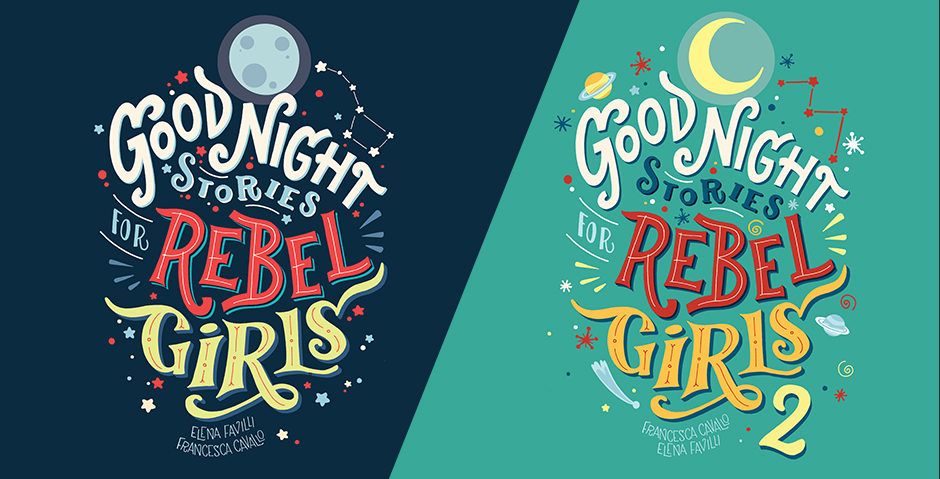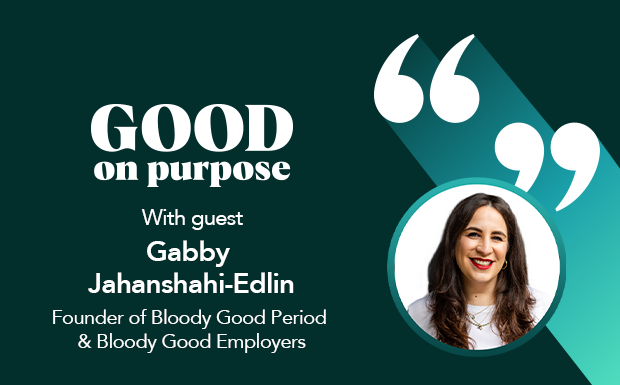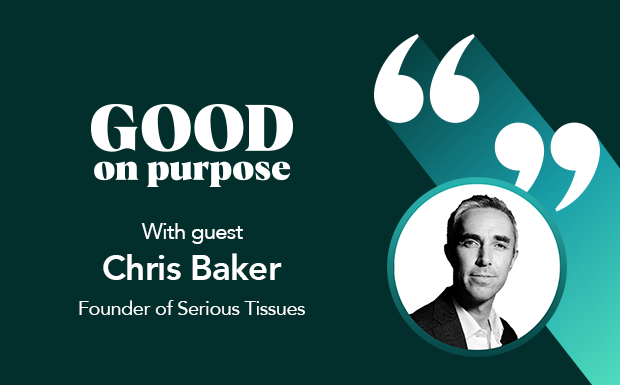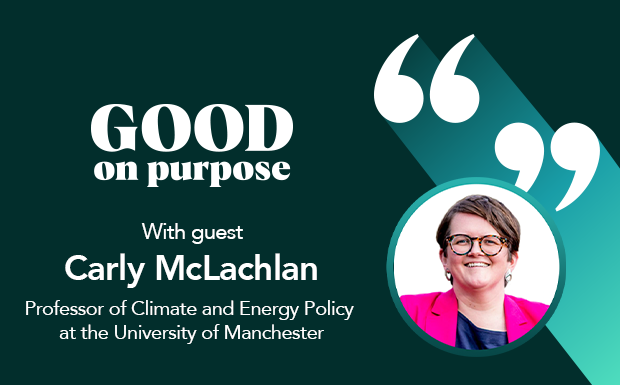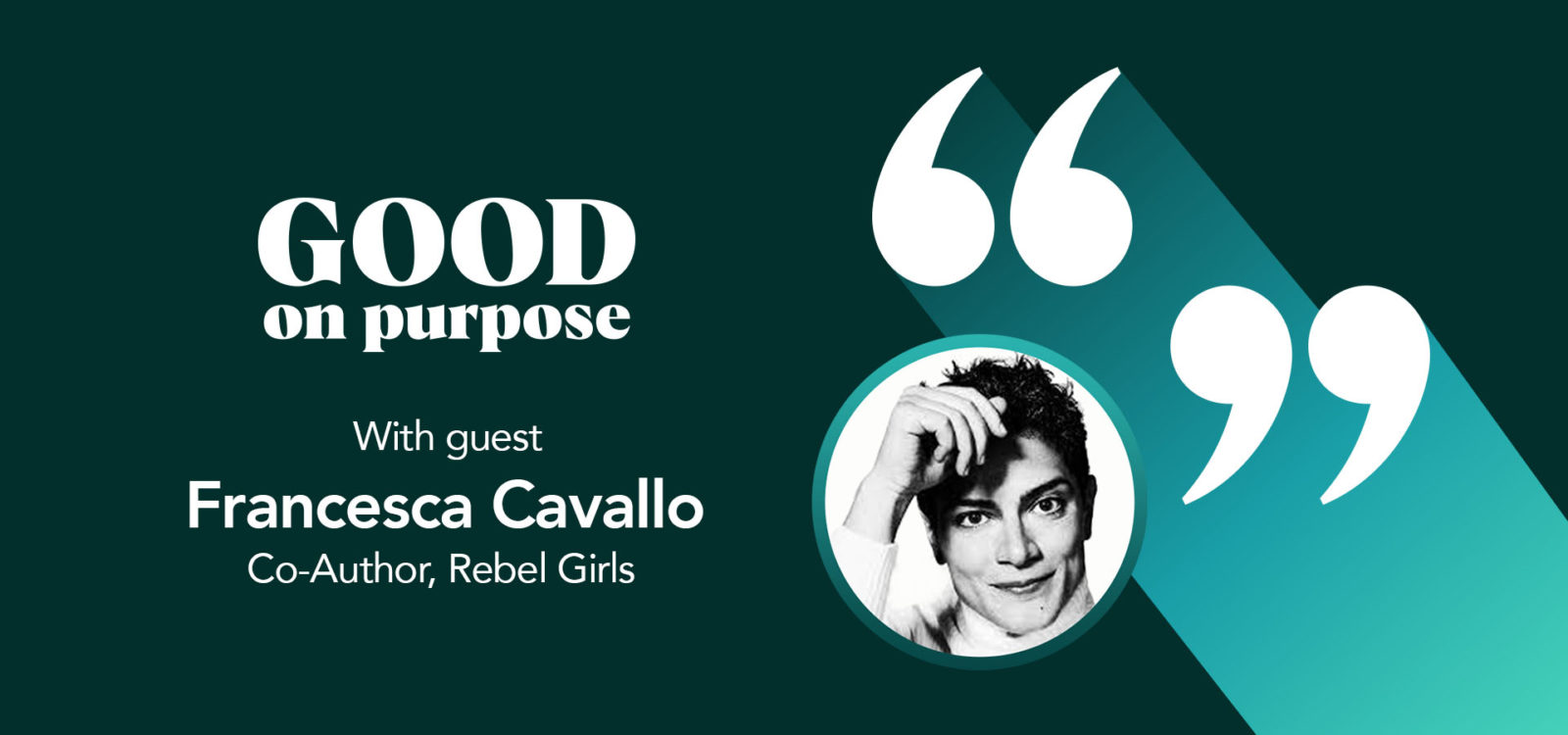
Francesca Cavallo on: The importance of representation and role models
This episode features Francesca Cavallo, New York Times bestselling author, entrepreneur, and activist. Cavallo is the co-creator of the global bestseller, Good Night Stories for Rebel Girls. She also launched three of the most successful crowdfunding campaigns in the history of publishing, creating a movement for the empowerment of young girls that inspired millions of people worldwide. An LGBTQ+ activist, feminist and entrepreneur, Francesca is unflinchingly honest when discussing her experience as a queer person in Italy and how that influenced her life and work to date.
Every fortnight on the GOOD on Purpose podcast, people who have made a conscious decision to lead a life with Purpose share their inspirations, motivations and life advice. Here, Francesca Cavallo, New York Times bestselling author, entrepreneur, and activist, shares hers…
The importance of representation
I was born in a small town in south-eastern Italy. And I grew up being a queer girl lesbian, without knowing that lesbian existed. So, for me, lack of representation has always been a very, very personal issue. I was deprived of my teenage love stories because I didn’t know that I could fall in love with a girl. People don’t realise how personal and how important this is because it changes the trajectory of people’s lives. It is incredibly real. It’s very personal. And it’s about the life of millions of people around the world.
But the really hard thing is that when you grow up in a world that is not prepared for you, you’re not handed a manual of instructions. So, you’re living in this world and everyone else as a manual, and you don’t have it and you feel like there’s something wrong with you, because everybody else knows how to behave. Everybody else knows how to get a boyfriend, everybody else knows how to get a girlfriend, and you don’t, and you don’t know what’s wrong with you. And you can think all sorts of different things.
I am lucky because I survived this. But there are people that never get to that point. So, while I understand that my story is inspirational for many people, it’s also important to realise that there are people who don’t survive this lack of representation.
Introducing new role models
When I was writing the first two volumes of Rebel Girls, I was really concerned with showing these women in the most relatable way possible. I don’t want them to seem like unattainable models, I wanted them to feel close. I wanted them to feel human. I wanted them to feel imperfect. Because that’s exactly the problem with role models. [A] role model should never crushing, they should never make you feel that it’s impossible for you to achieve what they achieved.
A role model should always show you how they did what they did, saying, ‘This is my experience. And you can follow my inclination for believing in my dreams but you don’t have to measure your achievements with mine. You only have to be inspired by the fact that we can live with courage. That we can forge paths that are new, we can travel through roads that have never been travelled, we can do all of those things. And we don’t have to worry to fail. Because there is no such thing. Failure does not exist. All that exists is experience.’
Diversity must be radical
The other kinds of stories that I publish now with my new company, UNDERCATS, INC, are these celebrations of the variety of experiences in life because otherwise, diversity becomes only a cosmetic operation. It’s very superficial to think about diversity only as a matter of having all characters with all different skin colours. Because if they have all different skin colours, but then they’re all doing the same things, they all have the same life, they all aspire to the same things. That’s not real diversity. Diversity is something else. It is way more radical. It requires a lot more care, a lot more attention. And it requires us to question our way of life, the things that we buy, the things that we sell. The values of our life. It requires a much more radical approach that questions our entire existence. And that is the part that I find fascinating and thrilling.
Inspiring a new generation of young children
My biggest hope, since the Rebel Girls days, has always been that [these] stories could inspire new conversations between parents and children; between grandparents and children. That’s the feedback I love the most; when people read my books, and they tell me, “I had conversations that I didn’t think I was capable of having with my child”, that is the thing that I really love. That’s for me, the goal is achieved. Mission accomplished. I think, and I hope these [children are learning] skills to be more curious about experiences that are different from their own.
I want to write stories about families that have a family member in prison, I want to write stories about kids who are in prison themselves. And because the children’s literature that we consider the standard leaves out not just a lot of characters with different skin colours and physical abilities and body types; it leaves out a lot of life experiences that are part of the life of children. And that is not the reality for a lot of children out there that don’t see their experiences reflected in the books they read, and don’t see the experiences of their classmates reflected in the stories they read.
So if I read that it is possible to have a parent in jail, for example, I can relate to my classmate who is having that experience. I can relate to that experience when it shows up on my doorstep. And I can stop pretending that life is supposed to be anything. Our life isn’t supposed to be anything, things are never as they should be. Things are as they are. And the moment that when we stop giving children the stories that instil in them the belief that there is a right to life and wrong lives, then we are creating space for more people to feel safe. We are creating space for more people to feel welcome. And when you create space for more people, to feel welcome, you are actively telling people that there is no part of you that cannot be welcomed. That there is no part of you that will be rejected. And in my opinion that creates a much better and equitable world.
